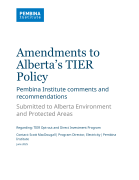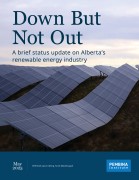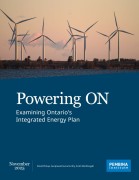
Scott MacDougall is the director of the Pembina Institute's electricity program, based out of Ottawa. He previously worked at the Institute as a senior advisor, focused on carbon pricing, oil and gas, and carbon capture utilization and storage. Prior to joining the Pembina Institute, Scott worked in climate policy and regulation at Alberta Environment and Parks, electricity and oilsands extraction at Suncor Energy, and sustainability and clean energy consulting in Northern Alberta. Through this work he gained a thorough understanding of the technical, government, and business challenges associated with emissions reduction policies and projects.
He holds bachelor's degrees in metallurgical engineering from Dalhousie University, and chemistry from Mount Allison University. He has been a key member of numerous award-winning teams that earned a number of President’s Operational Excellence Awards at Suncor, the silver award for innovative management from the Institute of Public Administration of Canada, and the Jacobs Engineering Master Builder Award.
Contact Scott MacDougall
Scott MacDougall's Research & Analysis

Amendments to Alberta's TIER Policy
Pembina Institute comments and recommendations
Ontario’s Integrated Energy Plan must strike right balance between wind, solar and other resources
Guaranteeing reliability and affordability of the system means capitalizing on the lowest-cost generation

Down But Not Out
A brief status update on Alberta’s renewable energy industry





